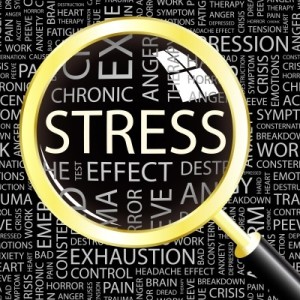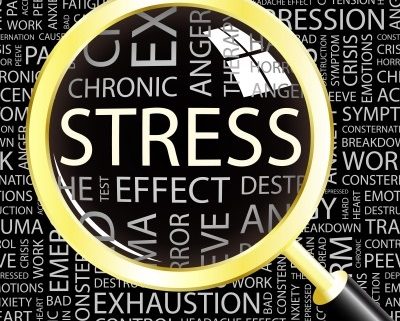Control Your Stress, Control Your Weight
 Stress eating is commonly associated with weight gain by way of making poor food choices, eating larger portions or engaging in mindless eating as a result of stress-related emotions. While you often attribute the weight gain to the food you’re eating, recent research has discovered that maybe it is the stress itself causing the weight gain, and the poor food choices that you make as a coping mechanism only exacerbate the issue.
Stress eating is commonly associated with weight gain by way of making poor food choices, eating larger portions or engaging in mindless eating as a result of stress-related emotions. While you often attribute the weight gain to the food you’re eating, recent research has discovered that maybe it is the stress itself causing the weight gain, and the poor food choices that you make as a coping mechanism only exacerbate the issue.
A study conducted at Ohio State University Wexner Medical Center questioned 58 middle-aged women about the previous day’s stressors before giving them a high fat meal consisting of 930 calories and 60 grams of fat. The meal consisted of eggs, turkey sausage, biscuits and gravy, a meal with calorie and fat equivalents to a typical fast food meal of a burger and French fries. The scientists then measured their metabolic rate for 20 minutes of every hour for the following seven hours. Men were not included in this study due to their higher muscle composition which, therefore, affects their metabolic rate.
The researchers found that the women who reported one or more stressors during the previous day burned, on average, 104 fewer calories in the following seven hours than non-stressed women. This decrease in metabolic rate could result in a weight gain of nearly 11 pounds in one year.
A majority of the stressors reported by the women were interpersonal stressors, such as disagreements with coworkers, spouses or friends, difficulties with their children or pressures from work. These stressors often lead to people making poor food choices often consisting of some kind of fast food or high fat meal, which is why the researchers gave the participants a meal with equal calorie and fat content. The women who reported more stressors also had higher levels of insulin, which contributes to increased fat storage, as well as less fat oxidation, which causes fat to be stored rather than burned.
Another component of the study that shows the direct effect of stress on weight gain was that the researchers randomized the type of fat in each meal given to the participants so that some meals contained saturated fat and others contained monounsaturated fat (a type of fat that has a variety of health benefits). It was found that it didn’t matter which type of fat was in the food; both high fat meals had the same effects in how stressors affect metabolism. Also, women who reported a history of depression as well as stressors displayed a steeper rise in triglycerides after the meal, which is a risk factor for cardiovascular disease.
As a woman, you wear a lot of hats on a daily basis, and with that often come a lot of stress. Between work, raising children and preparing meals for your family on a daily basis, there will always be something that triggers a stressful emotion. The best thing you can do to cope with stress is to engage in alternative coping mechanisms such as exercising or providing yourself with relaxation time such as reading a book, taking a bath, or treating yourself to a massage every now and then. If you know that you are a stress eater, help yourself out by making sure healthy food choices are always available. Prepare healthy meals for work the night before so that you don’t find yourself at the drive thru.
Take control of your stress and you will be able to take control of your weight!
Your turn to take action: What changes will you make to better manage your stress?


Leave a Reply
Want to join the discussion?Feel free to contribute!